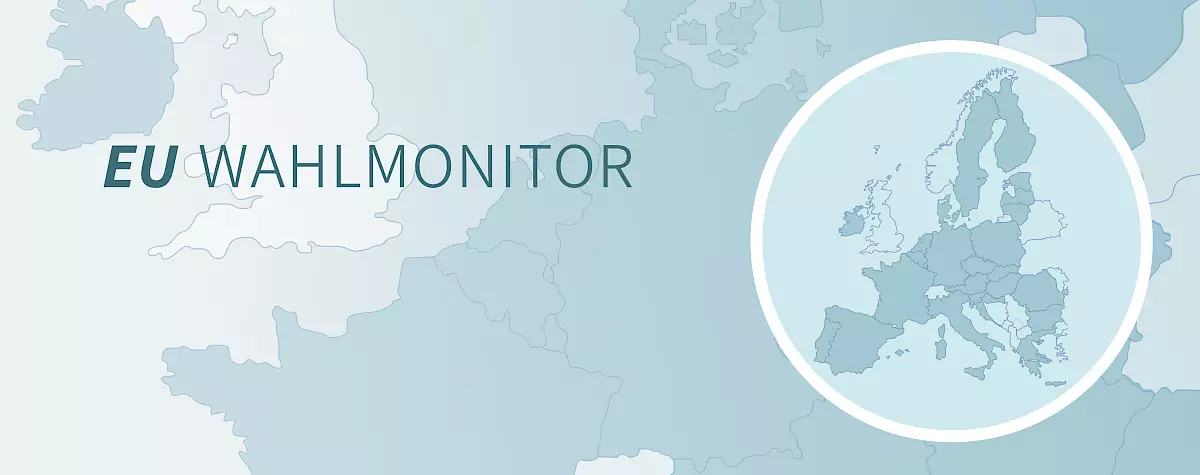The results of national elections in the member States of the European Union are relevant for the future of the EU. They determine the balance of power in the European Council and the Council of Ministers and thus indirectly influence the EU's decision-making processes. At the same time, national parliaments have comprehensive rights of participation and control and are involved in the progress of the European integration process.
The IEP's EU Election Monitor covers the national elections in the EU with factsheets, background information, short interviews and election analyses. In this way, the IEP aims to promote the transnational debate on European policy issues.

Download Übersicht Europäischer Rat
Dates for Parliamentary and Presidential Elections in the EU member states in 2024
|
Country |
Expected date |
Electoral cycle |
|
Finland |
28. January and 11. February |
6 years, Presidential Election |
|
Portugal |
10. March |
4 years, Parliamentary Elections |
|
Slovakia |
March |
5 years, Presidential Elections |
|
Lithuania |
12. May 6. October |
5 years, Presidential Elections 4 years, Parliamentary Elections |
|
Belgium |
9. June |
5 years, Parliamentary Elections |
|
Austria |
Autumn |
5 years, Parliamentary Elections |
|
Croatia |
22. September December |
4 years, Parliamentary Elections 5 years, Presidential Elections |
|
Romania |
December |
4 years, Presidential Elections |
Team
 Share project
Share project

















